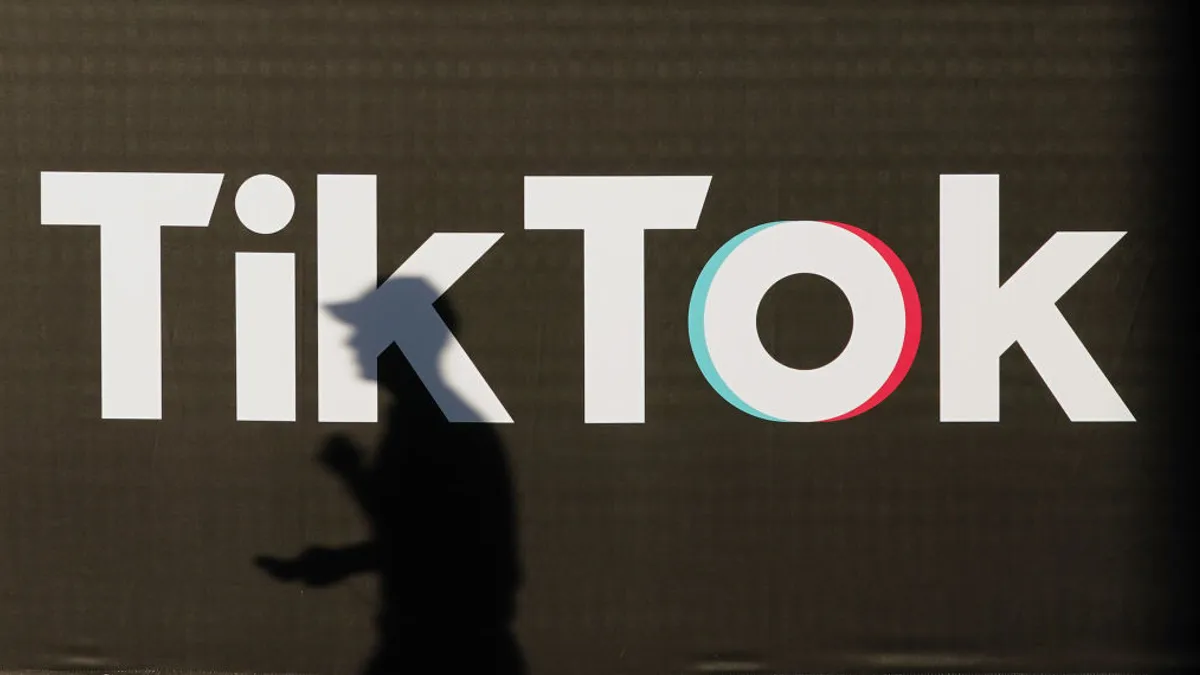From Facebook to Instagram to Snapchat, organizations have experimented with social media as a venue for attracting and recruiting talent.
The platforms offer, in some ways, an experience that is set apart from more traditional job seeking methods that are more likely to be used by candidates. For example, a 2019 Clutch survey found 41% of surveyed workers used a job board to locate their jobs, compared to 25% who found jobs through networking and 14% who did so via social media.
News reports in recent weeks suggest that yet another platform will soon become part of the social media recruiting conversation: TikTok. The popular video app is set to launch a web page, accessible via the app, where employers will be able to post jobs and users will be able to post video resumes, Axios reported May 11.
The idea "makes sense" for a variety of reasons, said Thibaud Clément, CEO and co-founder of marketing platform Loomly. Applicants and job seekers mimic consumers in the way they shop around for different positions, Clément noted, and some seek employers whose values match with their own. That may be particularly true for younger job seekers, a demographic that also makes up a large share of TikTok's base; an early 2021 survey of U.S. adults by Pew Research Center found that nearly half of respondents ages 18 to 29 used the app.
"They want to work for companies that make sense to them," Clément said of younger job applicants. "They will go with the employers that align best with their values and that they already know."
But for all the reasons employers might consider taking advantage of TikTok's new jobs feature — about which details are scant, at this stage — there are questions as to whether the platform will deliver what either side wants out of the recruiting equation. For one thing, it is not even a certainty that Generation Z members want to be contacted by employers on TikTok, according to Casey Welch, CEO of employment and scholarship platform Tallo.
Welch cited a 2019 Tallo survey of 512 high school and college students, which showed that while a majority of respondents at least "somewhat" agreed that it is important to build a personal brand online, only 9% felt TikTok ranked among their most important places to do so — far behind competing platforms. And 14% said they would prefer employers contacting their personal social media accounts on platforms like Instagram, versus the nearly 63% who said they would prefer employers contact them on a professional social media site such as LinkedIn.
"It doesn't work because it's awkward," Welch said of job advertising targeting Gen Z on personal social media sites such as TikTok. "It's really attractive that you know that group is there, but they don't want that type of advertising on there."
Instead, Welch noted that Gen Z members, along with other audiences on TikTok, have shown interest in TikTok content that focuses on career advice and guidance. TikTok accounts that produce such content have gained high-profile media coverage, with one Wall Street Journal story describing "a universe of career advice" available on the app.
Still, employers have made splashes extending their recruiting efforts to personal social media platforms in the past. McDonald's, for example, announced ahead of the 2017 holiday season that it would post jobs and initiate the application process via Snapchat with a tool dubbed the "Snaplication."
The feature may have paid off for the company, at least in the short term. Analysis by the Mobile Marketing Association showed that McDonald's received some 3,000 Snapchat applications within 24 hours, generating a volume of applications "four times higher than traditional methods had gathered in a whole week," MMA said.
TikTok's video resumes, if they end up being part of its platform, also could serve as an alternative to a recruitment process that has increasingly become subject to practices such as "keyword stuffing" in resumes, Clément said. He described instances in which engineering applicants included multiple keywords in their resumes to prevent being screened out by artificial intelligence.
"It's a huge opportunity for employers to, instead of going in a direction where it's all about quantity, change the direction [toward] something more qualitative and creative," Clément said. Candidates, he added, may already be comfortable with using video to introduce and describe themselves thanks to the popularity of video chat tools at work during the pandemic. "TikTok is not only going to serve that trend … it's actually improving upon it."
But employers will need to have an understanding of how to approach Generation Z in recruiting before moving forward, Welch said. These workers are looking for employers that have plans to tackle key issues such as diversity and inclusion, he noted, and may be more interested in longer-term commitments from employers than previous cohorts.
"Generation Z are not millennials, and you can't treat them the same way," Welch said. "You have to change your game plan if you want to engage them."
Younger applicants want employers to reach out, Welch continued, "even if you don't have an opportunity right now." And while Generation Z in particular may not want employers to encroach on certain online spaces, like TikTok, it may still be important for employers to be transparent about how they are addressing issues that younger workers care about.
Similarly, Clément noted that social media "is becoming more and more important" for employer branding, particularly in the recruiting context, because it provides an opportunity for potential talent to see updates about jobs and other initiatives. "If you're invisible, your chance of getting that top talent is basically going to be zero," he said.





















